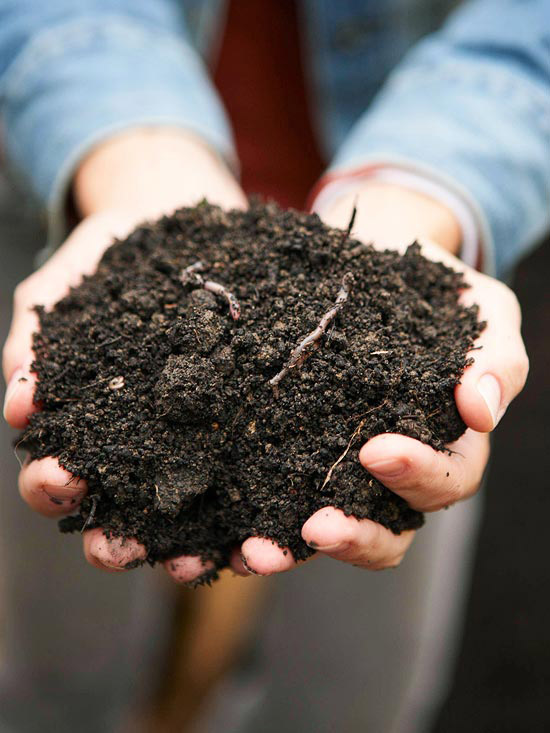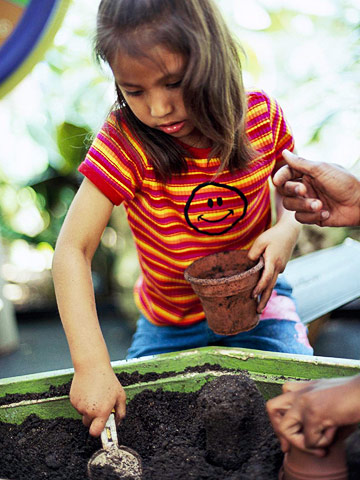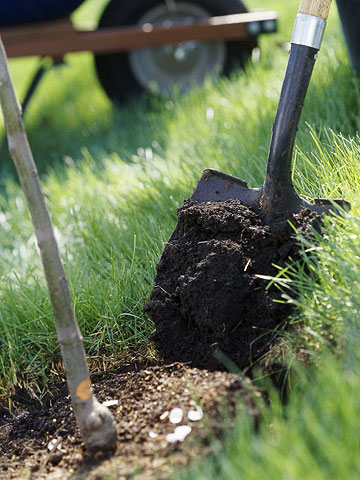





Organic matter may sound technical, but it's one of the most important tools you can use to keep your garden and landscape looking beautiful. What is this magical stuff? Organic matter is essentially compounds left over from plants and other living things as they mix into the ground.
continue reading below
Sandy soils can be a bit of a gardening challenge because sand is made up of relatively large soil particles; they fit together loosely so water runs through those big spaces rather quickly, making the soil dry out faster. There's also less opportunity for the soil to hold nutrients.
Organic matter helps sandy soils by acting like a sponge, allowing the soil to hold moisture during times of drought, and making nutrients available for a longer period before they leach out of the soil. Additionally, organic matter can help make some nutrients more available to your plants.
As it breaks down, organic matter also helps the soil hold better, reducing erosion.

Clay soils are made of very small particles that hold together tightly. As a result, there's much less air space in the ground for plant roots than what you find in sand. This dense makeup doesn't usually drain very well, though clay soils do typically hold nutrients well.
Organic matter comes to the rescue here, helping push apart those tiny clay particles and allowing for more air space. Water drains more freely and plant roots grow more readily. Because organic matter keeps those little clay bits from sticking together, the soil resists compaction, staying lighter and looser.

No matter what type of soil you have, higher levels of organic matter increase the activity of beneficial microorganisms, such as earthworms, in the soil. These microorganisms create more organic matter as they work, further helping the soil. Many microorganisms work to break down organic matter, releasing nutrients into the soil. Some beneficial micorganisms in the soil also attack plant diseases, helping your garden stay healthier.
Because it helps the soil structure, organic matter will keep your soil from turning dry and cracking as easily during times of extreme drought. When it does rain (or when you water), less water is lost to runoff and more is absorbed back into the soil.
Chances are, you can find a good source of inexpensive or free organic matter to use in your landscape. Examples include:
Copyright © www.100flowers.win Botanic Garden All Rights Reserved